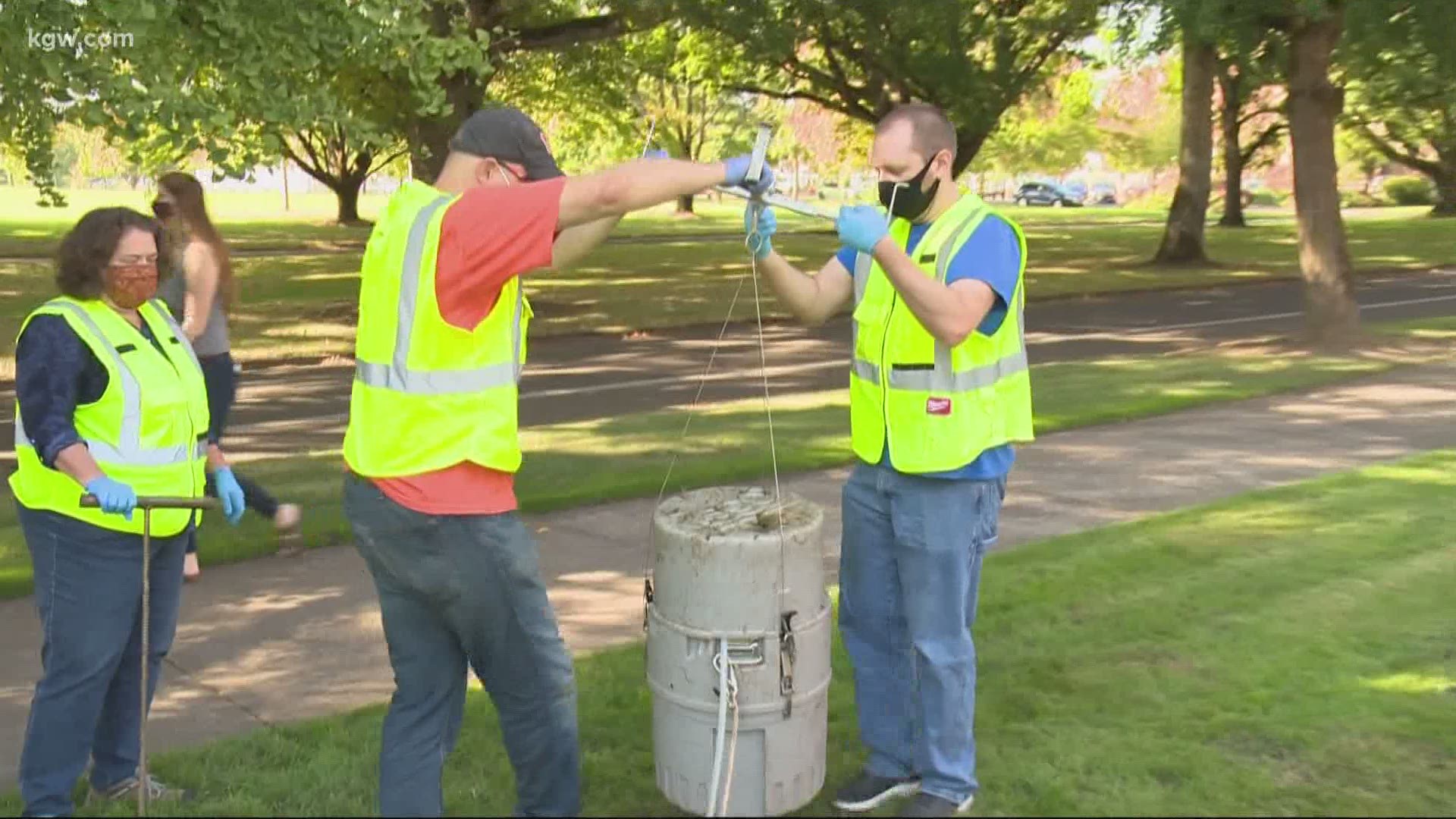CORVALLIS, Ore. — There's a big effort underway right now in Corvallis to try and track the COVID-19 virus. Researchers are sampling human waste to do it.
No question Oregon State University wildlife researcher Taal Levi knows a lot about poop.
"We do a lot of work with poop," he admitted. "I just got four giant boxes of wolf poop delivered yesterday."
Which is why his most recent study is so fitting. Levi teamed up with fellow professor of fisheries and wildlife Tiffany Garcia to collect, then test, the wastewater that flows beneath Corvallis in an effort to track COVID-19.
"Wastewater is a great surveillance tool for human diseases," Garcia said. "It's surprising how much evidence of disease gets excreted into the sewer systems."
With every flush of feces of an infected person, an inactive form of the virus enters the system. The university itself is conducting similar testing, but Levi and Garcia's is a bit different in that they're testing individual neighborhoods across the city. They started the testing in May.
"It turns out COVID took awhile to get to Corvallis," said Garcia. "We didn't detect it in wastewater until about July and then we had this big spike, so a lot of COVID in all the different basins."
In August, as the restrictions set in place started working, there was a definite drop until recently.
"Right now, we are experiencing an uptick in COVID detection, but we're still comparatively low as a city," Garcia said.
The takeaway? All those precautions we're taking, such as mask-wearing and social distancing, are working and the COVID-19 risk has lowered.
But the virus is far from gone.
"I think the message should be to be vigilant," said Levi. "There's coronavirus in every neighborhood. Wear masks especially in indoor gatherings, socially distance."
"It's still here," said Garcia, "It hasn't gone away."

